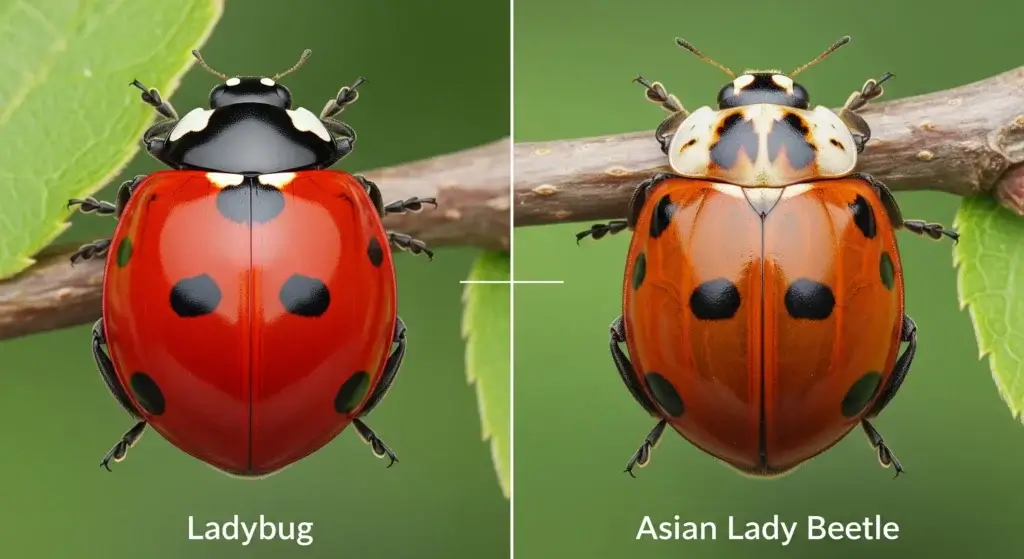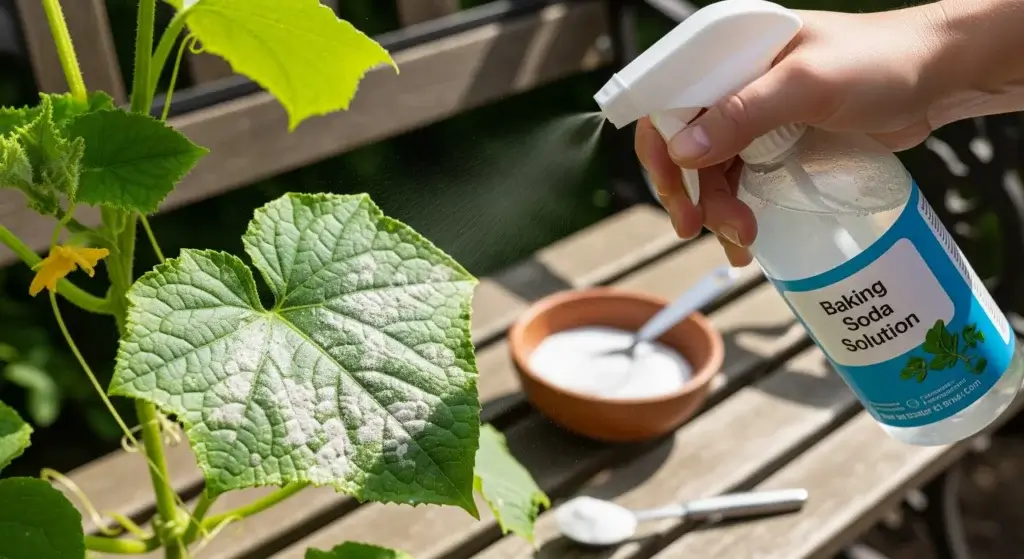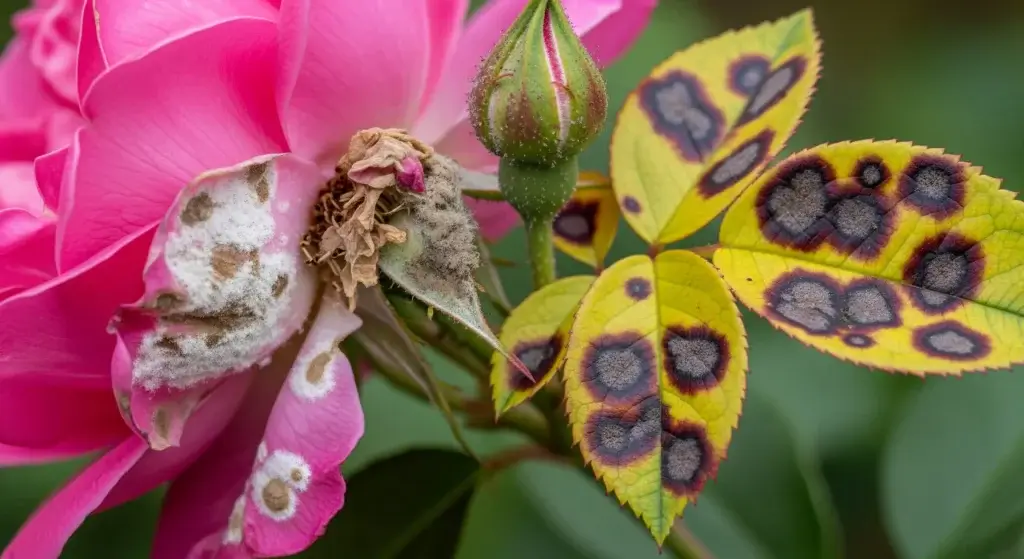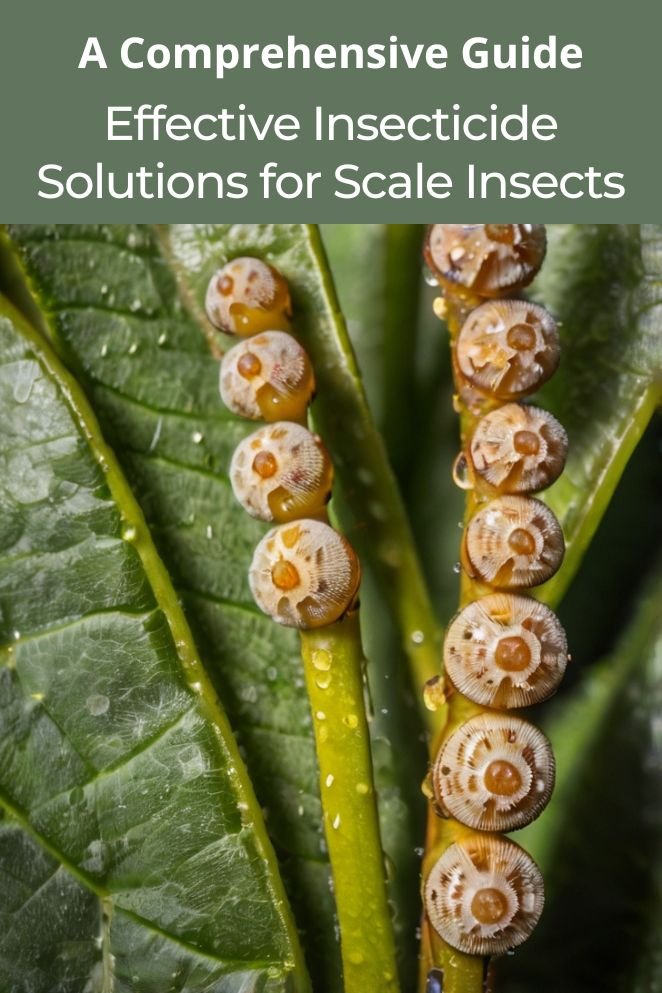
Scale insects are a common and frustrating problem for gardeners and plant enthusiasts.
These tiny, sap-sucking pests can cause significant damage to a wide variety of plants, including ornamentals, fruit trees, and houseplants.
If left untreated, scale infestations can weaken plants, stunt their growth, and even lead to death.
Understanding how to identify, manage, and prevent scale insects is essential for maintaining healthy plants.
In this comprehensive guide, we’ll explore the different types of scale insects, the damage they cause, and the most effective insecticides and natural remedies for controlling them.
Common Types of Scale Insects
Scale insects belong to the superfamily Coccoidea and are characterized by their protective, waxy coverings that resemble scales.
These coverings can make them difficult to spot and even harder to eliminate.
There are over 8,000 species of scale insects, but they are generally categorized into two main types: armored scales and soft scales.
Armored scales
Armored scales (family Diaspididae) have a hard, protective covering that is not attached to their bodies.
This covering can be removed without harming the insect inside.
Armored scales are typically smaller and more difficult to control due to their tough exterior.
Examples include the San Jose scale and the red scale.
Soft scales
Soft scales (family Coccidae) have a soft, waxy covering that is attached to their bodies.
These insects are generally larger than armored scales and produce a sticky substance known as honeydew, which can lead to the growth of sooty mold on plants.
Common soft scales include the cottony cushion scale and the brown soft scale.
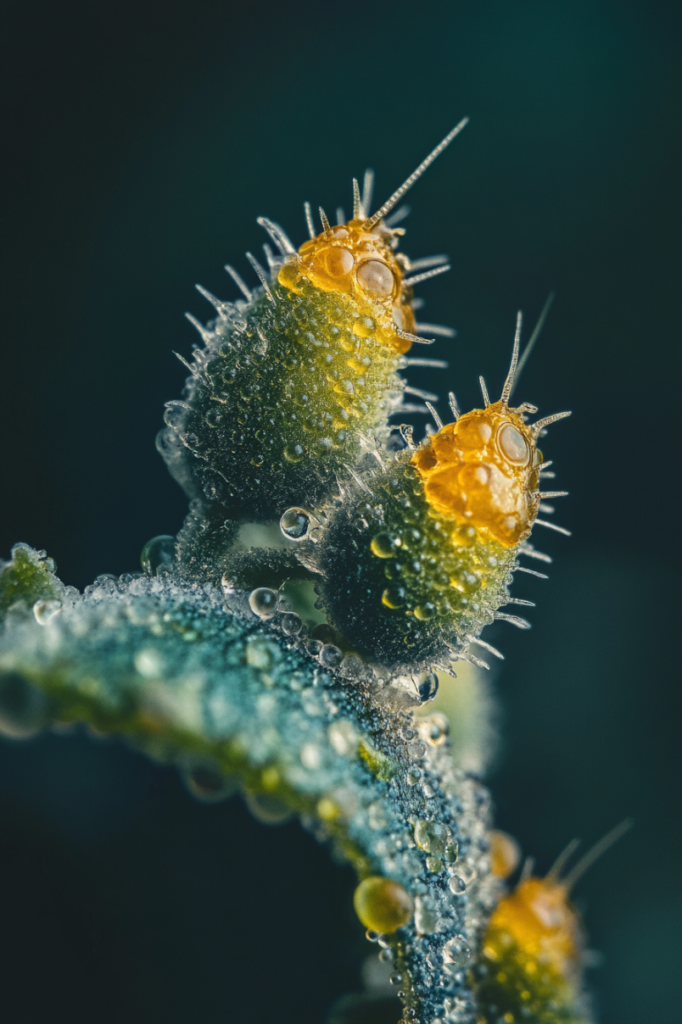
Signs of Infestation
Detecting a scale insect infestation early is crucial for preventing serious damage to your plants.
Here are some common signs to look for:
- Yellowing or wilting leaves: Scale insects feed on plant sap, which can cause leaves to yellow, wilt, or drop prematurely.
- Sticky residue: Soft scales secrete honeydew, which leaves a sticky coating on leaves and stems. This can attract ants and promote the growth of black sooty mold.
- Bumps on stems and leaves: Scale insects often appear as small, raised bumps on the surfaces of stems, leaves, or branches.
- Stunted growth: Heavy infestations can weaken plants, leading to stunted growth and reduced vigor.
The Damage Caused by Scale Insects
Scale insects can cause serious harm to plants in several ways.
Here’s a detailed look at the damage they can inflict:
Direct damage
Scale insects feed on the sap of plants, which is their primary food source.
As they feed, they draw essential nutrients from the plant, weakening it over time.
This feeding can lead to several issues:
- Reduced Growth: The plant may struggle to grow and develop properly because it is not getting the nutrients it needs.
- Poor fruit production: Plants may produce fewer fruits or flowers, affecting their overall yield.
- Plant death: In severe cases, the damage can be so extensive that it results in the death of the plant.
Honeydew and its effects
Scale insects excrete a sticky substance called honeydew as they feed.
This honeydew can lead to additional problems:
Sooty mold
The honeydew provides a perfect environment for sooty mold, a black fungus that grows on the surface of the plant.
While sooty mold itself doesn’t harm the plant directly, it covers the leaves and blocks sunlight, which the plant needs for photosynthesis.
This reduces the plant’s ability to produce energy and can lead to further decline.
Ant infestations
Ants are attracted to the honeydew and may come to the plant in large numbers.
These ants can protect the scale insects from their natural predators, making it harder to control the infestation.
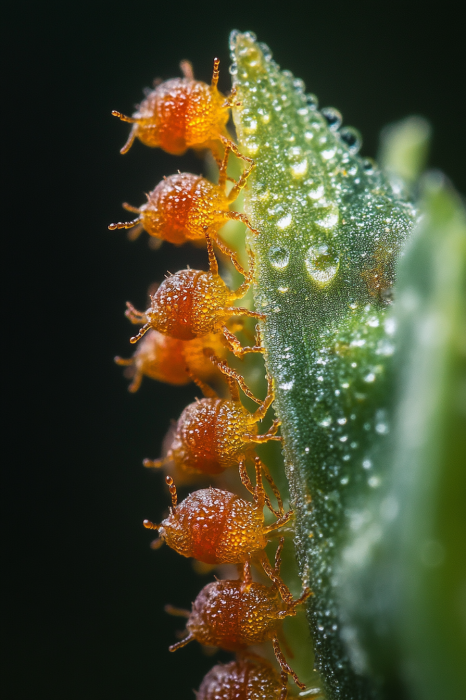
Natural Remedies for Scale Insects
If you prefer organic methods for managing scale insect infestations, there are several natural remedies you can use.
Here’s a closer look at each option:
Horticultural oil
This oil, which can be made from petroleum or vegetable sources, works by coating the bodies of scale insects.
This coating suffocates the insects, cutting off their air supply.
Horticultural oil is effective against both armored and soft scale insects.
It can be applied during the plant’s dormant season or while the insects are active, helping to control their population without harming the plant.
Insecticidal soap
This type of soap acts as a contact insecticide.
When it touches the scale insects, it disrupts their cell membranes, causing them to dehydrate and die.
Insecticidal soap is particularly effective against soft scales and is safe to use on most plants.
It’s a good option for those looking to manage pests without using harsh chemicals.
Neem oil
Neem oil comes from the seeds of the neem tree and is known for its insecticidal, fungicidal, and miticidal properties.
It works by interfering with the feeding and reproductive processes of scale insects.
Neem oil can be used both as a preventive measure and as a treatment for existing infestations.
It’s a versatile and natural solution for managing scale insects.
Beneficial insects
Introducing natural predators like ladybugs, lacewings, or parasitic wasps can help control scale insect populations.
These beneficial insects feed on scale insects and help keep their numbers in check.
By promoting a healthy ecosystem in your garden, you can encourage these helpful insects to take up residence and manage pest problems naturally.
Manual removal
For smaller infestations, you can manually remove scale insects.
Use a soft brush or a cotton swab dipped in rubbing alcohol to gently scrub or wipe off the insects.
This method requires regular monitoring and persistence, but it can be effective for managing small-scale problems.
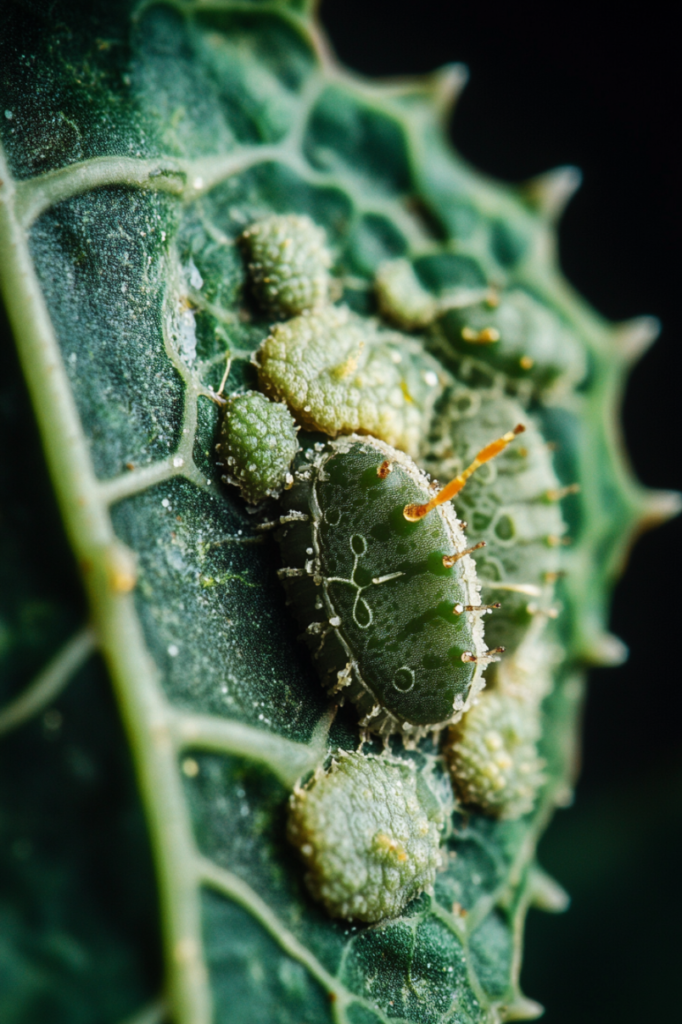
Chemical Insecticides for Scale Insects
When natural remedies are not sufficient, chemical insecticides may be necessary to control a scale insect infestation.
Here are some of the most commonly used chemical treatments:
Systemic insecticides
Systemic insecticides, such as those containing imidacloprid, are absorbed by the plant and transported to all parts, including the sap.
When scale insects feed on the sap, they ingest the insecticide, which kills them.
Systemic insecticides are effective against both armored and soft scales and provide long-lasting protection.
Contact insecticides
Contact insecticides, such as those containing pyrethrins or bifenthrin, kill scale insects on contact.
These insecticides are most effective when applied directly to the insects, but they may require multiple applications to achieve full control.
Dormant oils
Dormant oils, also known as dormant sprays, are applied during the plant’s dormant season to suffocate overwintering scale insects.
They are especially effective against armored scales and can help prevent infestations in the growing season.
Integrated Pest Management (IPM) for Scale Insects
Integrated Pest Management (IPM) is an environmentally friendly approach to pest control that combines different management strategies to reduce pest populations.
When dealing with scale insects, an IPM approach might include:
- Monitoring: Regularly inspecting plants for signs of scale infestation allows for early detection and treatment before the infestation becomes severe.
- Cultural practices: Maintaining plant health through proper watering, fertilization, and pruning can reduce the likelihood of scale infestations.
- Biological control: Encouraging natural predators and using beneficial insects can help keep scale populations in check without the need for chemical insecticides.
- Chemical control: If necessary, chemical insecticides should be used as a last resort and in combination with other IPM strategies to minimize environmental impact and reduce the risk of pesticide resistance.
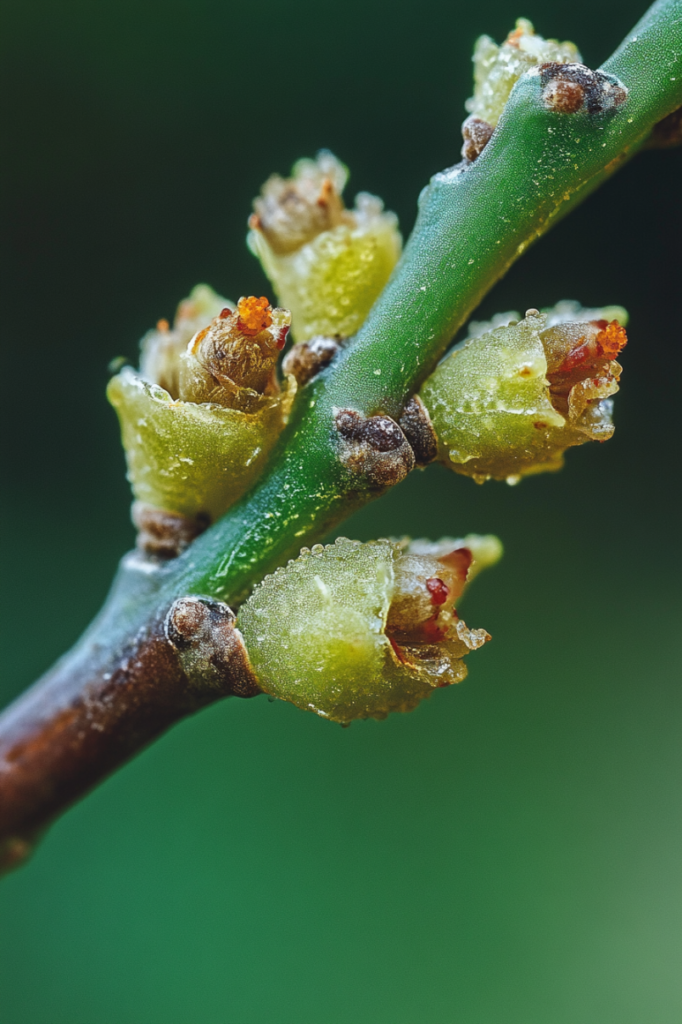
Preventing Scale Insect Infestations
Preventing scale insect infestations is easier than dealing with an established problem.
Here are some tips to help keep your plants scale-free:
- Inspect new plants: Before introducing new plants to your garden or home, carefully inspect them for signs of scale insects or other pests.
- Quarantine new plants: Isolating new plants for a few weeks allows you to monitor them for any developing infestations before they spread to other plants.
- Keep plants healthy: Strong, healthy plants are less susceptible to scale infestations. Provide your plants with proper care, including adequate water, light, and nutrients.
- Prune infested areas: If you notice a few scale insects on a plant, prune away the affected areas to prevent the infestation from spreading.
- Regular monitoring: Regularly check your plants for signs of scale insects, especially during the growing season. Early detection allows for quicker, more effective treatment.
Conclusion
Scale insects can be a persistent and damaging pest, but with the right approach, they can be effectively managed and controlled.
Whether you prefer natural remedies or chemical insecticides, understanding the different options available is key to protecting your plants from scale insect infestations.
By implementing an Integrated Pest Management (IPM) strategy and taking preventive measures, you can keep your garden or home plants healthy and thriving.

